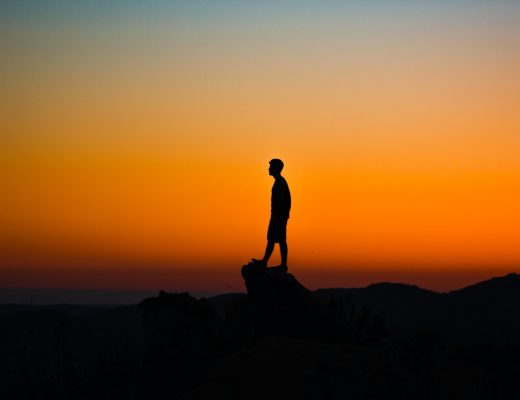“That inner voice has both gentleness and clarity. So to get to authenticity, you really keep going down to the bone, to the honesty, and the inevitability of something. – Meredith Monk
First a Confession.
I’ve lost my way with this thing. What started as an honest exploration into suffering and, ostensibly, an exit out, has gotten itself mired in ego.
Early on, when I was crashing and burning, when howls of anguish literally would shatter a routine car journey, when I was flying off to a canyon or a jungle or a mountaintop to ‘seek God’ in one rite of passage or another, these was something raw and authentic there, based as it was in humility. Humility.
It wasn’t my story, it was our story.
I didn’t have any answers. That was the whole point to the exercise.
And then the edges to all that suffering were softened a bit, each day wasn’t shrouded in a melancholy fog, and in the way that you can feel an analgesic kick in and you know the really bad stuff is behind you, it occurred to me that I’d learned a thing or two. It was time to share that. The student had become a teacher.
Oh boy.
Phoenix-like, I was back, baby, filled with lectures and lessons, and where I didn’t have the answers I’d parrot those who did.
That’s the thing about suffering: We want so badly to be out of it that we crawl right smack back to the self from which it all began. After all, it’s the only self we’ve ever known.
And honestly, I was an ass. People who point and pontificate and lecture, people who judge and demean and advise the world as to how it should be, these people suffer greatly. That’s why they project so damned much. As long as my finger is stuck pointing way out there there’s really no chance that this fragile, miserable me can become the target. And I’ve got really long arms.
Suffering is called dis-ease for a reason. It hits you and you take an aspirin or pour yourself out on some therapist’s couch and imagine that you have driven it into remission. But like any good disease it lurks there in the shadows of the soul, ready to reclaim the same life you’ve mistakenly imagined is once again yours. The yin and yang, up and down, yo-yo’ing cycle of human existence.
Mercifully, in his eagerness to pontificate the ‘new me’ must have left the door ajar just enough for God to shine through a spit of light and show me the litany of anxieties and fears creeping back into the picture. And there they were, increasingly emotional arguments with my wife, abrasive language, impatience, a sense that “I” had the answers.
Fortunately, I really did learn a thing or two these past many years and here’s a biggie: If you are earnest in your search, if you humble yourself to this existence, if you are true to your suffering and do not turn away from it, it will provide what is needed. It – God, the grand intelligence of the whole thing – will blind you with its lesson plan.
All of which means Inspiratus-as-confession is back. The imagined Buddha was found on the road and appropriately slain. Sorry ’bout that, all part of the journey I suppose.
Which leads to the Caution.
It’s going to get a lot more raw around here.
Sound self-important? I don’t care. Sound self-indulgent? Probably. I don’t care. It’s my blog. Go read People if it’s too much for you.
The day after my first ayahuasca experience, the one that didn’t count, the dud, I wandered out of our camp, the jungle pressing in on me, the red clay of the road sticking to the sweat on my legs. I felt utterly, hopelessly alone. An ache of indescribable intensity seemed to be devouring my heart and I stood there for a long time in the Peruvian Amazon and cried.
The pain stemmed not merely from the misery of that place in time, not just from the preceding months and years and decades of accumulating pain. It came, too, because I knew that I was trapped, that I did not want to go back to the life that had led me there. There was no forward and no backward and so I just stood there in a kind of existential paralysis until I got hungry and wandered off to eat.
It’s time to get back to that place where the suffering delivers the honesty these frightened little minds of ours prefer to avoid. Or as David Carse offers near the end of his magnificent book, Perfect, Brilliant Stillness, it is once again time to “find yourself asking the dangerous question, the question the ego does not want you to ask, the question that will end your life.”

